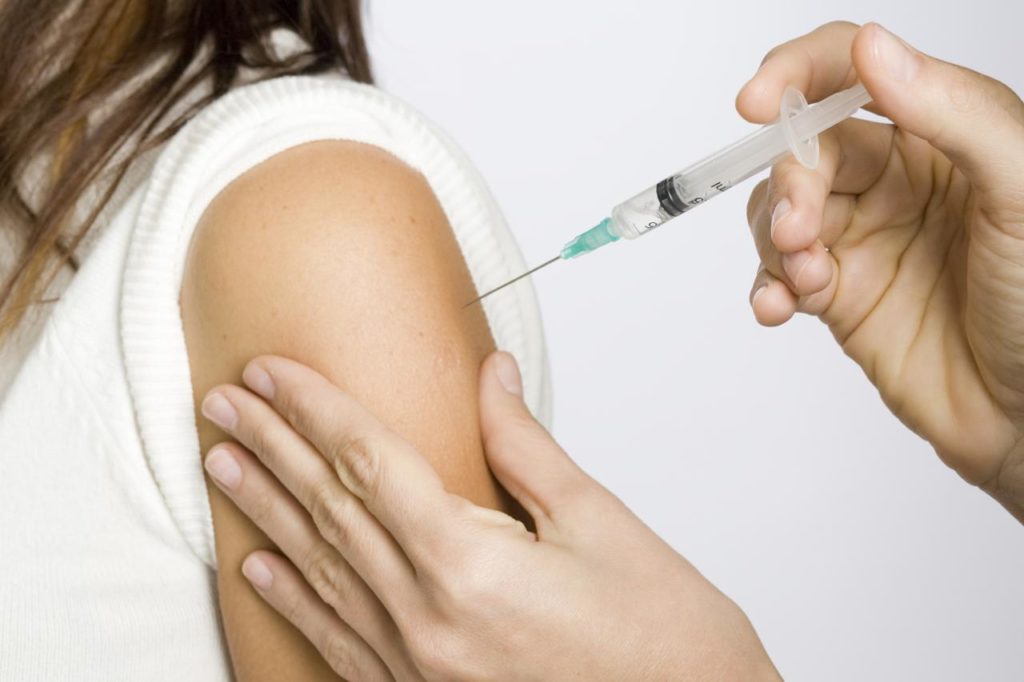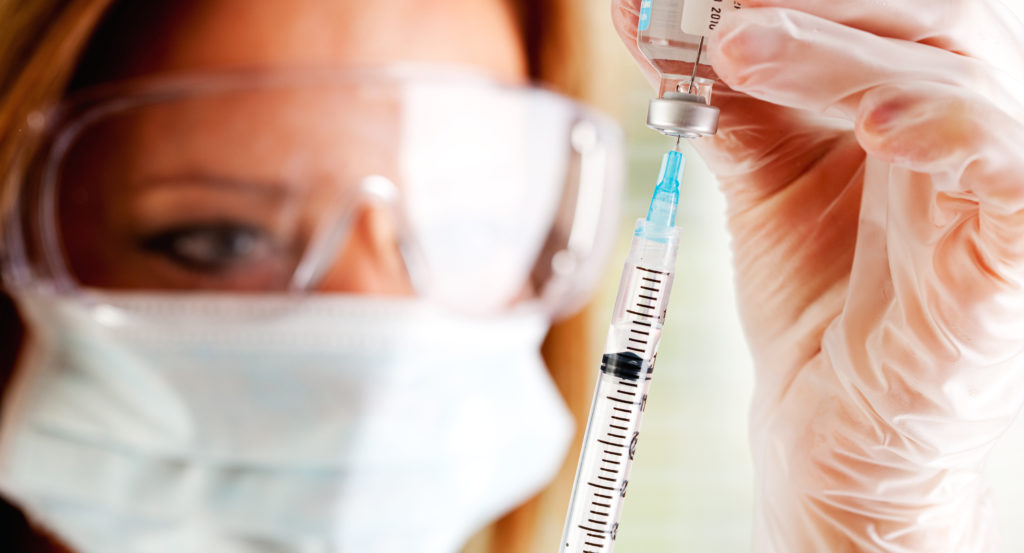Rubella Viral Infection is a contagious disease caused by a virus that attacks the respiratory tract. It causes characteristic redness that first appears on the face, then extending over the chest and the rest of the body. The disease is usually mild in children, but it can have dangerous consequences when a pregnant woman transmits it to the fetus (congenital rubella). Once a person is infected with the disease, it is permanently immunized. Rubella can be prevented by a vaccine that is part of the infant immunization program in Canada and France. The joint measles-mumps-rubella (MMR) vaccine has much reduced the incidence of this disease in countries where included in the routine childhood immunization program.
Rubella Viral Infection: Transmission
Rubella is a contagious disease that spreads through tiny droplets produced by the nose and mouth. People infected with the virus are contagious about one or two weeks before the rash and at least four days after the onset of redness. The incubation period (that is, the time between the time the virus contracted and the emergence of symptoms of the disease) can last from 12 to 23 days.

Rubella Viral Infection: Complications
Rarely, rubella can cause:
- A form of minor arthritis affecting the fingers, wrists, and knees, which usually disappears on its own after about a month. More often, it affects adolescents and adults and more women than men (up to 70% of infected adults).
- An ear infection (otitis)
- Encephalitis, affecting adults more often (1 case out of 6000)
Rubella Viral Infection: Symptoms of rubella
The symptoms of rubella appear two to three weeks after exposure to the virus. They usually last two or three days.
- Fever
- Headaches
- A runny nose
- A sore throat.
- Swollen eyes (conjunctivitis).
- Swollen glands at the base of the neck and behind the ears
- An eruption of small red or pink spots, mainly in the face, behind the ears and in the neck, can cause itching. These spots gradually extend to the arms, chest, and back to reach the legs and feet.
- Painful joints (especially in infected adolescents and young women)
- Up to 50% of people infected with the rubella virus have no symptoms.

Rubella Viral Infection: Risk factors
- Not being vaccinated against rubella
- Traveling to a developing country where the disease is present without receiving the rubella vaccine

Rubella Viral Infection: Prevention
When a pregnant woman contracts the rubella virus during the first three months of pregnancy, this can have severe consequences on the development of the fetus, and sometimes even lead to death.
Can we prevent it?
The vaccine is the best way to prevent a rubella infection. The MMR (measles, rubella, and mumps MMR II) vaccine is administered to children in two doses, the first usually around 12 months and the second around 18 months. Both in France and in Canada, this vaccine is fully reimbursed by Medicare.
A vaccine is available for women of childbearing age who would not have received the vaccine during childhood. The vaccine can not be given to pregnant women.

Medical treatment of rubella
No treatment can cure rubella. It is recommended to take a lot of rest and promote quiet activities. A humidifier can help clear the airways. Plus, some medications can alleviate symptoms of the disease:
- Analgesics: Acetaminophen (Tylenol®, Panadol®), ibuprofen (Advil®, Motrin®) or naproxen (Aleve®) can treat fever. Warning. Aspirin (acetylsalicylic acid-ASA) should not be administered to children as there is a risk of causing Reye’s syndrome.
- Antibiotics: If a bacterial infection, such as an ear infection develops following rubella, a doctor may prescribe antibiotics.
- Injection of immunoglobulins: Pregnant women, children, and people with weak immune systems who are exposed to the virus can receive immunoglobulin injections. When administered within the first six days after exposure to the virus, these antibodies can alleviate the symptoms of the disease. However, these antibodies do not eliminate the possibility of transmitting the disease to the fetus.


